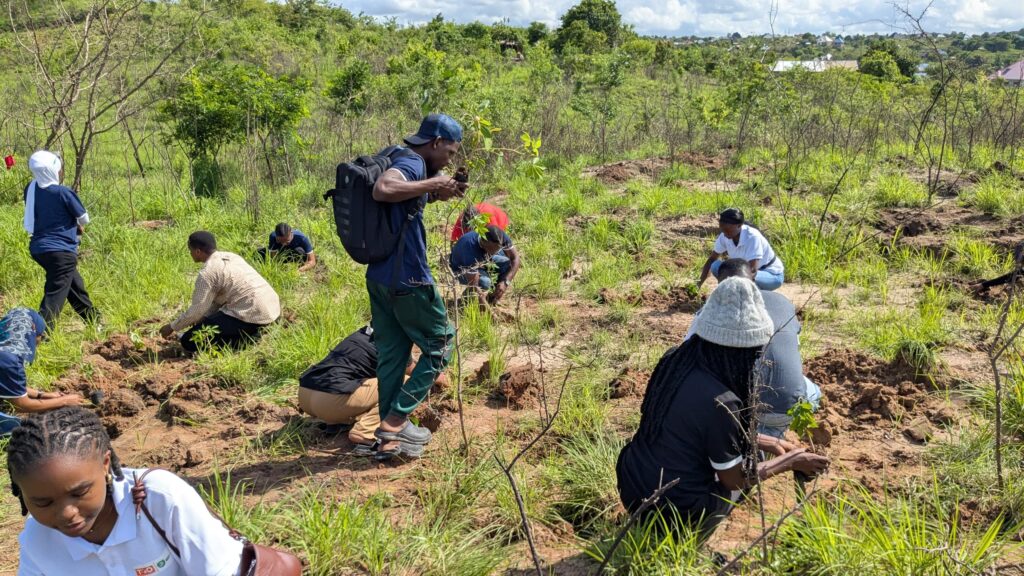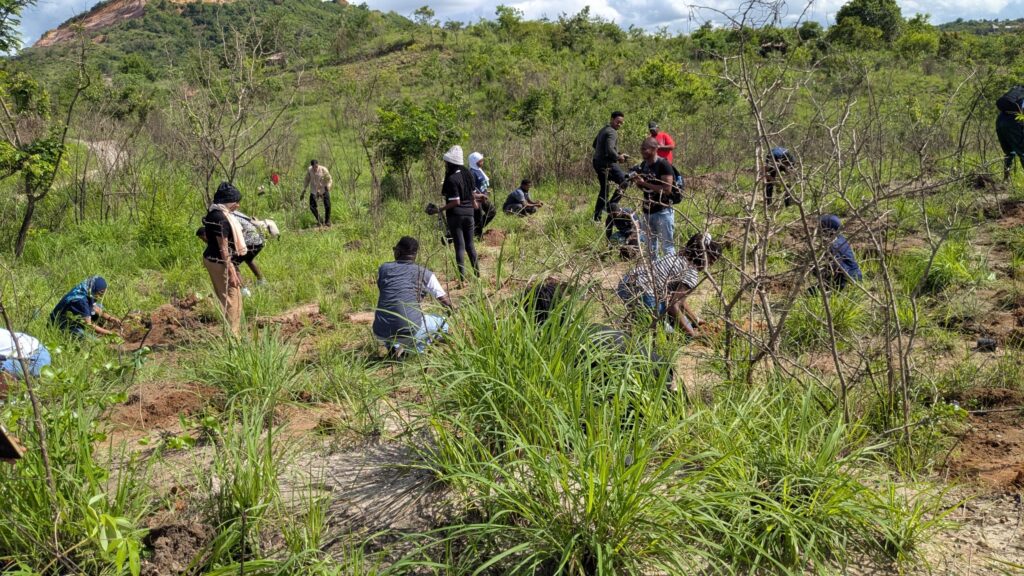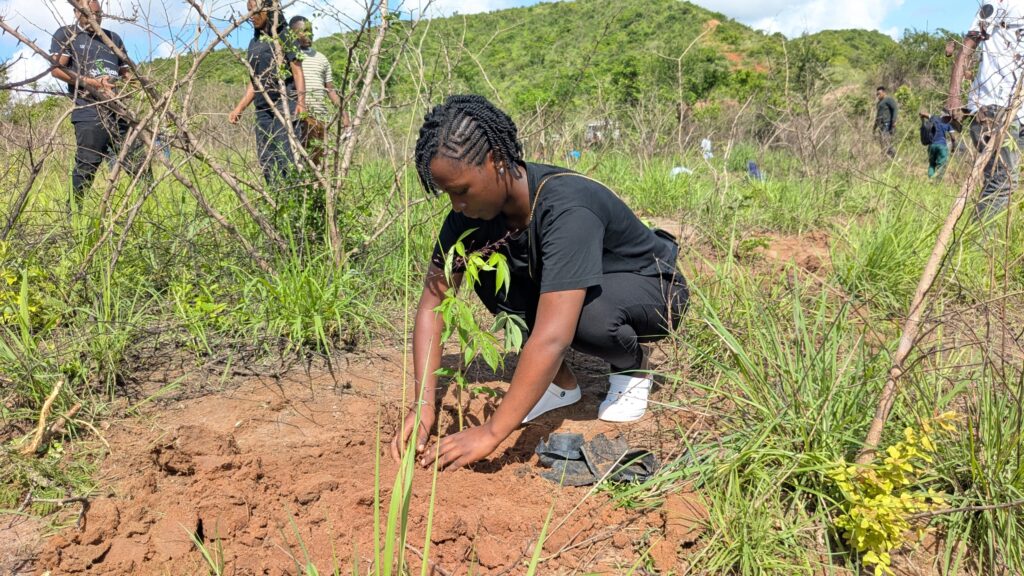Dar es Salaam. With statistics showing that approximately 460,000 hectares of forest are lost annually in Tanzania, the World Wide Fund for Nature (WWF), in collaboration with the Tanzania Forest Services (TFS) Agency, has joined efforts to restore degraded areas.
This initiative is part of WWF’s “Ishi Kijani, Ishi Kijanja” (Live Green, Live Smart) campaign, which includes a nationwide tree planting exercise. In Pugu, Dar es Salaam, the organizations have planted 3,000 trees as part of the campaign.
The ongoing forest loss is largely caused by human activities such as illegal burning, charcoal production, and logging by individuals with no regard for environmental conservation.
Speaking during the tree planting event at Pugu Mwambisi, Ramadhan Mnaguzi, a Forest Assistant from TFS, emphasized that destructive activities should not be ignored.
“Once environmental stakeholders plant trees to restore degraded forest areas, we play our part by conducting patrols. We arrest those involved in forest destruction and bring them to justice,” he said.

Mnaguzi added that they monitor people entering forest reserves without official permission, aiming to protect forests that are under threat from human interference.
“We especially combat wildfires during August when the grass is dry. We educate the public and arrest offenders when we find them,” he said.
He urged those engaging in destructive activities to stop immediately, warning that such actions severely harm the forests and come with dire consequences.
Dr Thomas Sawe, Project Manager for Forest Restoration in the Eastern Arc region at WWF, said the “Ishi Kijani, Ishi Kijanja” campaign is designed to involve young people in restoring areas degraded by human activity.
“WWF is supporting the national goal of restoring 5.2 million hectares of degraded land. Out of this, WWF is directly assisting the government with 2.6 million hectares,” he said.
He noted that the campaign is being implemented in all regions where WWF has restoration projects, with young people actively involved. The goal is to help them understand the importance of environmental conservation through action.
“Research shows that a large portion of the world’s land has been degraded due to human activities. There are continental-level targets to restore these areas, and that’s exactly what we are doing,” he said.
Dr Sawe also pointed out that unsustainable farming, wildfires, unregulated livestock grazing, illegal logging for timber, charcoal and poles, as well as lack of awareness and community involvement, are major causes of deforestation.
He stressed that their work supports the government in restoring damaged areas and conserving existing forests. He added that the planted trees are regularly monitored to ensure proper growth.

“We are working hand in hand with TFS. They allocated us this land where we have planted 3,000 trees, aiming to conserve forest areas. Research shows that regions in southern Tanzania experience the highest rates of forest loss,” he said.
One of the participants in the tree planting activity, Gillia Lyimo, said that as a youth, she is collaborating with stakeholders to save the natural vegetation and disappearing forests. She emphasized that everyone has a role to play in protecting the environment and ensuring ecological balance.
Similarly, Hussein Jaffar, a resident of Kisarawe, condemned deforestation, stating that cutting down trees is unacceptable. He called for greater efforts in tree conservation and urged those engaged in deforestation to find alternative livelihoods.


